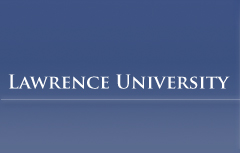Document Type
Honors Project
Publication Date
5-29-2019
Abstract
Angiogenin (ANG), a secreted vertebrate ribonuclease, was discovered for its ability to stimulate neovascularization but has been shown to play a central role in tumor cell proliferation, translation attenuation in conditions of cell stress, and neuronal cell health. Our work aimed to better understand the molecular mechanisms of ANG in the nucleus that facilitate its diverse biological activities. The specific goals of this work are twofold: first to identify positions on human chromosomes where ANG interacts with the DNA or non-coding RNA, and second to determine if ANG works with another stress-response protein, heat shock factor 1 (HSF1) to regulate gene expression. We used chromatin immunoprecipitation (ChIP) to characterize the molecular interactions of ANG and identify genes co-regulated by HSF1 and ANG. Future work will also be aimed at characterizing the ANG: HSF1 interaction.
Level of Honors
magna cum laude
Department
Biology
Department
Biochemistry
Advisor
Kimberly Dickson
Recommended Citation
Vinopal, Claire, "Identifying Binding Sites of Angiogenin on Human Chromosomes" (2019). Lawrence University Honors Projects. 142.
https://lux.lawrence.edu/luhp/142
